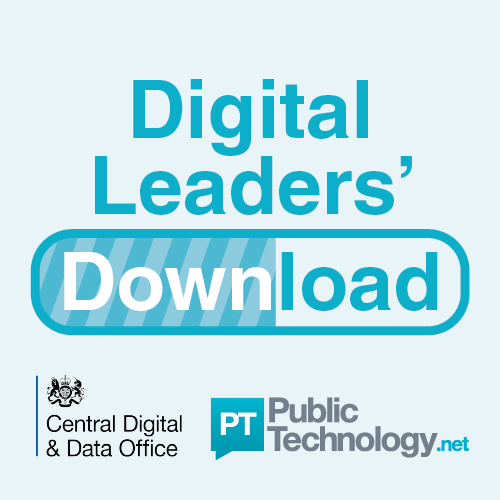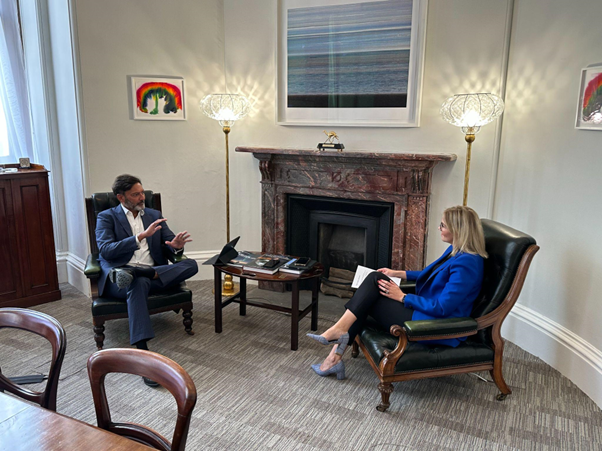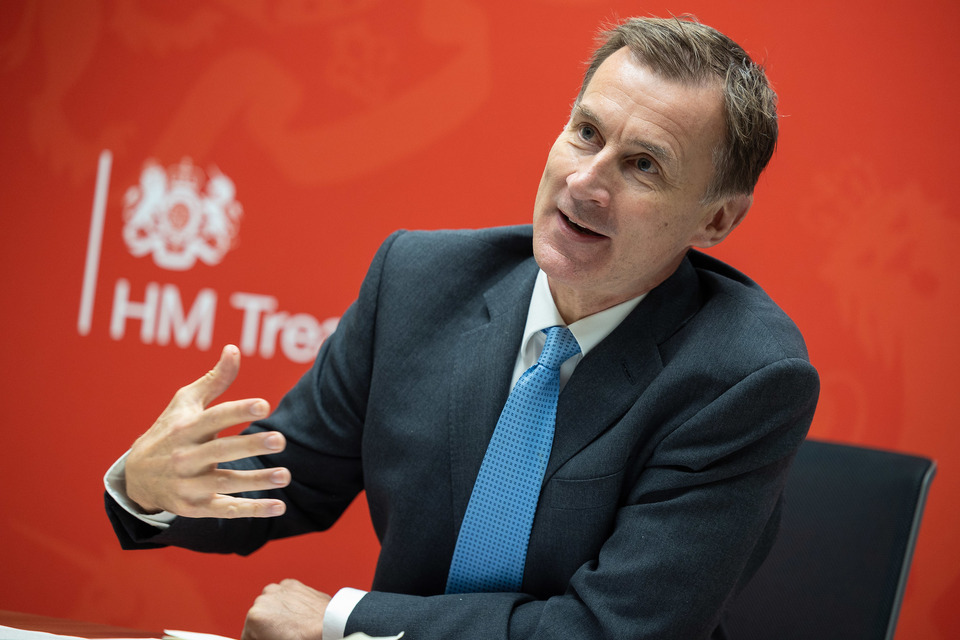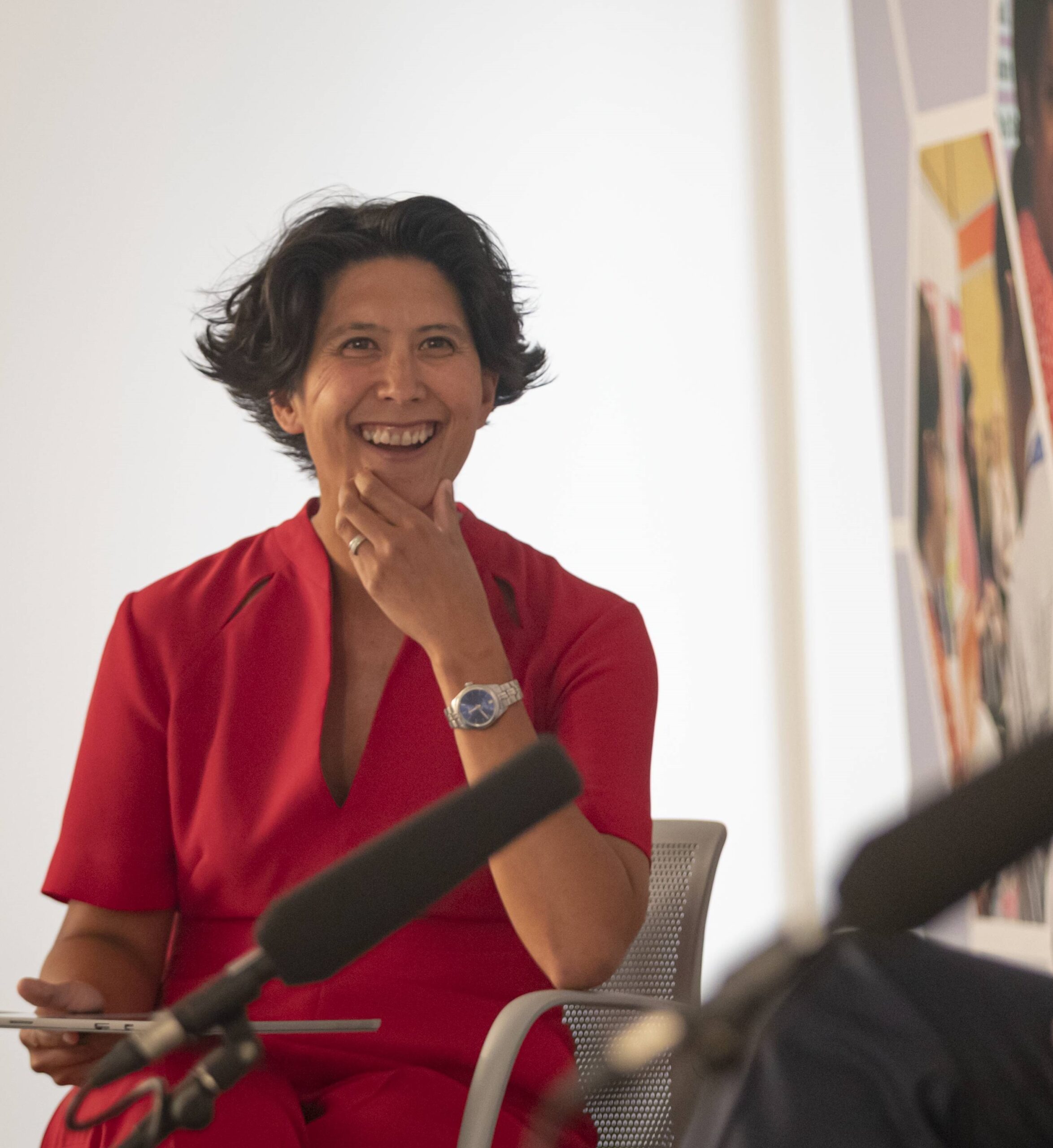Director general of the Foreign Office – who will shortly take up leadership of the Electoral Commission – discusses how, even in a security conscious environment, there is room to be ‘revolutionary’
As of this month, Vijay Rangarajan will take a new post as chief executive of the Electoral Commission – a role in which, in the coming months, he can expect to oversee the running of local and national election processes that have to contend with the threats of disinformation and deepfakes.
But this is hardly an upgrade in responsibilities from his current posting as a director general at the Foreign Commonwealth & Development Office, with a brief that covers Afghanistan, Pakistan, UK Overseas Territories, and the Middle East and North Africa, as well as leading the department’s work on energy, climate and the environment and serving as the board-level champion for digital, data and technology.
On top of which, Rangarajan was previously British Ambassador to Brazil from and, before that, held responsibility for the FCDO’s work on the Brexit referendum and the subsequent negotiations. Earlier in his career, he held positions at the Cabinet Office and Ministry of Justice, focused on political and constitutional reform, and the UK’s democratic processes.
PublicTechnology is delighted to be working with the Cabinet Office’s Central Digital and Data Office on our ongoing Digital Leaders’ Download series of interviews with some of government’s most high-profile figureheads – both in the fields of digital, data and technology and beyond.
Having previously published interviews with the digital unit’s recently departed chief executive Megan Lee Devlin, former HM Prison and Probation Service leader Jo Farrar, national statistician Sir Ian Diamond, and HM Treasury second perm sec – and soon-to-be Cabinet Office leader – Cat Little, this piece features a recent discussion between the former CDDO head and Rangarajan (both pictured above).

Megan Lee Devlin: You have been a strong advocate for digital transformation in FCDO, including representing the digital agenda on the management board. What do you see as your role as a digital leader?
Vijay Rangarajan: Increasingly, we need to spend significant amounts of time enabling the right conversations to happen in our senior governance, such as how technology will change our business model.
We are very security-conscious at FCDO for many reasons, as we are a massive target. As a team we need to balance security with digital transformation – checking we have the right capabilities to look ahead and making sure that the right structures are in place to enable digital transformation.
About 70% of our time is making sure we get the basics right such as a cloud-based international IT structure that enables people, wherever they are in the world, to collaborate in a crisis such as Gaza or the Covid-19 pandemic. That’s been such a step change for us.
20% is about what we can evolve. For example, harnessing the data that we have access to and sharing it to make a difference.
10% is the more revolutionary stuff that will really change how we work – disruption. It’ll disrupt everyone in time. We want to embrace it, and use it actively, changing our business models ourselves.
MLD: In that space, towards the more revolutionary end of the spectrum, what excites you most about the role of digital and data in transforming the way we work?
VR: There are three themes that come through really clearly for us. There’s a lot of data out there that can help us be more efficient. Secondly, we can change how we interface with people – people are living digitally and our modes of interaction must evolve. And thirdly, internally, we know how digital can make our processes easier and more efficient.
When your job is about influencing, it’s also really interesting to see what people are thinking and understand what their narrative is. We can automate social media analysis now and be so much more responsive.
In a broader sense of data, we should be thinking: what data do we have, what data do we want to collect, and what’s going to be useful in the future? Digital twin mapping is particularly important if you’re trying to map, say, conflict stability or importance. There’s also a lot in the climate and energy space that I think this could be really useful for. Obviously, the climate science world is very good at this and very good at its modelling. But how do we really use that to protect against water scarcity? Or to make the leaps from that into compiling all the indicators of stability for a particular area, such as migration and weather patterns?
!e need a very high rate of experimentation. I don’t think that’s where we are yet. I don’t think people are experimenting or encouraged to experiment enough.
Vijay Rangarajan, FCDO
MLD: What are you especially proud of, in terms of what you and your team has achieved through digital and data?
VR: Some nice examples include the King’s Coronation, where we had large numbers of people coming in from around the world. The logistics were incredibly complex: flights, security, cars, all of which had to be coordinated and I think for the first time this was done digitally. The whole process was automated and arrivals and departures were tracked, and it worked.
As part of merging FCO and the Department for International Development (DFID) – we completed the first ever UK government secure cloud-to-cloud migration moving bringing all our users and their data onto a single platform. It’s essential for collaboration between teams, particularly when crises are running across the world.
The FCDO’s Centre for Data and Analysis – that is looking at the language process for data use and what data we want. This will help us move our resources where they are needed.
Finally, we are quite a devolved, complicated organisation: from mapping out climate emissions to large compounds in Islamabad and complex missions in Doha or Kabul – it’s huge. So how do we measure our carbon emissions? What’s our most effective way of decarbonising? What can we do about lovely old buildings like we’re in here, in King Charles Street? What are the cost drivers? From understanding what our carbon emissions are, and then working out what’s the most cost effective way of reducing them, there are lots of ways digital and data can be used.
MLD: Tackling both the problems we have now and some that are increasingly becoming a burning platform. Looking further ahead, if we were to fast forward to 2025, what do you hope that you will have achieved in the digital and data space?
VR: This space is going to just evolve and iterate and iterate and iterate forever. So we need a very high rate of experimentation. I don’t think that’s where we are yet. I don’t think people are experimenting or encouraged to experiment enough. By 2025, we can have better systems to make us more aware of what is going on in our own department, to share best practice and an environment that encourages experimentation. At FCDO we expect that we will have established the next phase of how we are doing our consular work, having large data models up and running, and in use. And I’d love to see far more automation of the processes that we have now. And by 2025 I’d like to implement one of our “disruptive” ideas in practice…

Look out for more interviews in the Digital Leaders’ Download series.

Catch up here on our interview with Lee Devlin – including insights into eliminating departments’ biggest legacy risks, unlocking £8bn of technology investment, and the rollout so far of government’s three-year digital strategy. Or here you can read her discussion with former HM Prison and Probation Service head Jo Farrar, including her thoughts on the potential of virtual reality and AI, and why it’s time for civil servants to stop accepting outdated IT. Lee Devlin’s discussion with national statistician professor Sir Ian Diamond can be read here, including insights from the ONS chief on how data can deliver “answers we could only have dreamed about 20 years ago”. The outgoing CDDO chief also spoke to HM Treasury second permanent secretary Cat Little; in the interview, which took place shortly before her unveiling as the new civil service chief operating officer., Little discussed how policy and digital can combine to deliver “radical” new outcomes.




